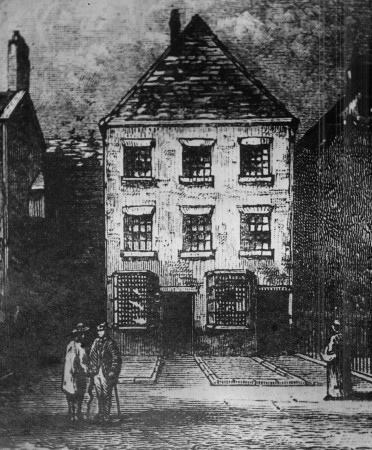Cliff Mills, from Anthony Collins solicitors, will be speaking on capital and the common good at the Ways Forward 5 conference in Manchester on 20 January.
We know what the problem is.
Businesses owned by investors – or plcs – work well for those they are intended to benefit, namely investors. But they don’t operate for the common good.
We also know what is needed to create a better world. Capital, which at present is mainly dedicated to the pursuit of profit, must pursue a different, better and fairer purpose – something not limited to private, short-term gain but rather the long-term benefit of all.
The point just made is, of course, a “capitalist” analysis of the problem; namely, one which sees our modern predicament from an economic perspective, and regards the levers of trade and the financing of trade as the basis for a solution. Solution: “get more money into co-operatives”.
While we do need to engage with this contemporary economic perspective, we should be careful not to let it limit our thinking. As Einstein warned: “We cannot solve our problems with the same thinking we used when we created them.” And we can certainly broaden our thinking by employing a longer-term historical perspective.
Those from a UK co-operative background might draw inspiration from an alternative approach to trading and the financing of trade, which led to an explosion of capital growth. It started off as a pragmatic way of enabling desperately exploited people on the brink of starvation to get access to food at a fair price. Others with a European background might point to co-operative initiatives focused on generating jobs, or financial security.
Related: Reframing the debate around co-operative capital
Mutuality is a well-established self-help mechanism for communities to find alternative solutions. Where people are struggling against adversity, it is human nature to look for solutions with others. Solidarity creates opportunities not open to individuals. The risk of building relationships and trusting others is outweighed by the benefit of collective action – and the result is not just the discovery of a solution to the problem, but the emergence of something called “society”.
We can trace a direct line from the establishment of co-operative trading in 1844, and the emergence of a co-operative economy alongside the rise of the trade union movement, to the founding of the Labour Party and the post-war settlement of 1948. Many would regard this point in history as a milestone in the evolution of the modern state, even if we might all have different views about what should have happened next.

Between 1844 and 1948, the basic idea of mutuality became mainstream. A system that we all paid into, and which protected not just ourselves but also the most vulnerable, might seem almost idealistic today; but in 1948 it just seemed obvious, and it was introduced with wide popular support. But that’s another story: let’s go back to capital.
In 1844, 28 people set about the challenging task of raising enough money to start a business which they would own and control as customers. Capital grew at prodigious rates and what started as £28 in an impoverished northern English town led to a UK-wide co-operative economy with capital of some £23m at the turn of the 20th century.
While “new money” was needed to start a society, the accumulation of capital was substantially due to trading surplus, left in societies as undrawn dividends. This money belonged to members who were comfortable that their money should be kept in their society, paying them interest, at a time before the wider availability of financial services.
As well as funding the growth of mainstream retail services for many on lower incomes, co-operative trading (and capital) funded education and training, housing, new local businesses, manufacturing, producing, processing and packaging, even some health and well-being services for members and employees. Co-operative capital was an engine for economic development. With hindsight, we might even call this “capital for the common good”.
Human economic activity (buying and selling, working for reward, saving) is a fact of the modern world. This economic activity can be carried on for a broader public or community purpose – something partially achieved by co-operative trading and broader mutuality. And it can be carried on for a private purpose, for the benefit of investors.

History provides clear evidence that trade can be carried on for the common good, not just private profit – yet people today struggle to imagine the possibility of anything other than today’s dominant approach.
If we would prefer capital to be dedicated to a different and kinder purpose, we need businesses dedicated to such a purpose, with ownership, governance, reporting and monitoring arrangements which support and promote such a purpose.
And we need capital to commit to that purpose – my capital and yours (retirement and other savings), and the collective and indivisible benefits of co-operative trading for the benefit of future generations.
This is neither beyond imagination, nor beyond possibility. It is important to address the technical questions around the modernisation of financial instruments, constitutions and statutes to move the agenda forwards; but let’s not narrow the debate to something about legal and accounting technicalities.
The real question is whether we want and can imagine a different world.
- Ways Forward 5 takes place on Friday 20 January 2017, from 9.30am-4.30pm at Central Hall, Oldham Street, Manchester M1 1JQ, and is sponsored by North West Housing Services, Anthony Collins Solicitors, Co-operative & Community Finance, The Midcounties Co-operative, The Co-operative College, The Phone Co-opand Co-operative Business Consultants.
- To book your place, contact Phil Frampton on 07901 338700 or email [email protected].
- A late booking fee of £15 is chargeable after 11 January.